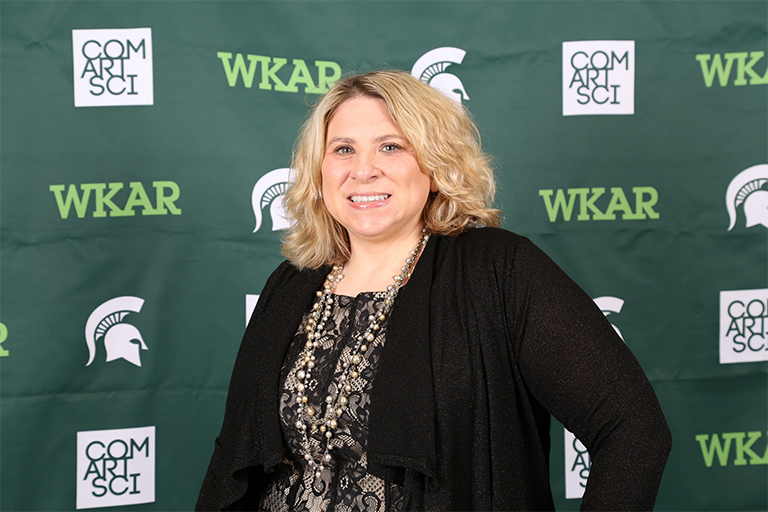ComArtSci's Sports Journalist in Residence Joanne C. Gerstner started researching sports concussions five years ago. Little did she know the journey would lead to a book, called Back in the Game: Why Concussion Doesn’t Have to End Your Athletic Career, which now has won the 2017 National Clarion Award for best nonfiction book.
Back in the Game discusses all aspects of concussions, such as evaluation of symptoms, treatments and post-concussive syndromes, and is based on current medical and scientific research.
“The book is designed as a real-world conversation for youth sports parents, coaches and even athletes, to help them all better understand all facets of concussion,” said Gerstner, the Sports Journalist in Residence in the School of Journalism. “There is a lot of advice and bad information flying around, especially online, so we wanted to create a medically-based, science-based resource that was in non-jargon language.”
The topic of concussion is everywhere these days, from the media to the movies. This inspired Gerstner to write the book, in order to provide an authentic and accurate discussion from a new perspective.
“More than 40 million children annually play sports in the U.S., and there is heightened concern about concussions and athletes,” said Gerstner. “People hear a lot about concussions in pop culture and the media, in movies like “Concussion”, but a lot of it is not accurate information.”
The Perfect Co-Author
When writing Back in the Game, Gerstner worked alongside Dr. Jeffrey Kutcher, the national division chief for The Sports Neurology Clinic in Brighton, Michigan. Gerstner first met Kutcher during her professional fellowship at the University of Michigan, when Kutcher was heading the NeuroSport clinic. It was here that Gerstner learned more about how concussions look, act, are diagnosed and treated. She also met the recovering athletes, and many times, their parents and loved ones.
“Dr. Kutcher is fantastic,” said Gerstner. “Getting to learn from him, see him work with patients, go to conferences, be a co-author, and now a good friend, has been a wonderful experience. He is one of the leading authorities in the world on sports concussion, and he really wants to help athletes play safer and have their best brain health throughout their lives.”
The two worked well together, and they conducted a vast amount of research for the book. Kutcher already had a lot of personal clinical knowledge to contribute, as he is a board-certified neurologist and works with the U.S. Olympic team, the NHL Player’s association, the NBA and the U.S. Ski and Snowboard team.
Feeling Grateful
Gerstner and Kutcher both worked incredibly hard on the book, starting the writing process in 2013. The award from the Association for Women in Communications means a lot to them, considering the time and effort they spent on the project.
“The Clarion Awards are quite competitive, and for us to be the best in nonfiction this year is something we are truly grateful for,” said Gerstner. “We combined our knowledge and thoughts, and created a book that we hoped would help people understand all facets of concussion – from facts to dispelling myths. It was a lot of work, but we are so proud of the way the book turned out!”
Kutcher is also incredibly pleased with the award, as he directly treats many athletes and families that are affected by concussions each and every year.
“Any time your work is recognized at a national level, it’s a tremendous honor, which is why having Back in the Game win the 2017 Clarion Award means so much,” said Kutcher. “That being said, we wrote the book for patients, their families, coaches, and anybody else who touches the sports concussion issue in any way. We’ve been very happy to see our message and work resonate with these groups, and we accept the 2017 Clarion in their honor.”
So next time you hear someone mention the word “concussion,” point them in the direction of Back in the Game. It’s within these pages that you’ll find the most updated information about the injury, from two people who have studied concussions for years.
By Katie Kochanny
